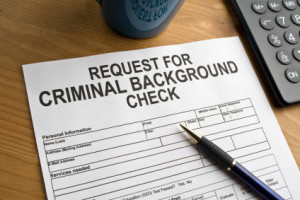



People face many problems both in their career and personal life alike. Some of those problems have lasting consequences even though they have been settled in the past. Today we would like to talk about one of such problems - a criminal record. It is obvious that people who have any kind of criminal history will have to overcome different obstacles when trying to find a job. Hiring managers don't take kindly to candidates who must admit they have been convicted of a felony on an application form. In many ways, it does put limits on opportunities out there to such people even though they have already paid the price for their mistakes and left it in the past. While a criminal record certainly complicates a job search, we cannot emphasize enough that is quite possible to handle.
How to Tell an Employer About a Criminal Record?
 If you had to say 'yes' to the question about a criminal record while filling out the job application that doesn't mean you won't be hired automatically. People make mistakes and everybody knows that. Even hiring managers. So because it is quite possible to overcome these hurdles job seekers who have been convicted of a felony in the past should really work on their resume making it as effective as it can possibly be. If you manage to skillfully present your confidence and highlight necessary experience on your resume and in a cover letter it is quite likely that employers will tend to overlook your criminal record. So a resume and cover letter should become a primary point of interest to you and hope for employers. That's how you can secure an interview for yourself after all. First of all, you don't have to start your resume by saying that you have been convicted of a crime. Remember that a resume is not the document to share your whole life story with employers. If you didn't have a question about criminal history on a job application form, don't worry, you will still have the opportunity to mention that.
If you had to say 'yes' to the question about a criminal record while filling out the job application that doesn't mean you won't be hired automatically. People make mistakes and everybody knows that. Even hiring managers. So because it is quite possible to overcome these hurdles job seekers who have been convicted of a felony in the past should really work on their resume making it as effective as it can possibly be. If you manage to skillfully present your confidence and highlight necessary experience on your resume and in a cover letter it is quite likely that employers will tend to overlook your criminal record. So a resume and cover letter should become a primary point of interest to you and hope for employers. That's how you can secure an interview for yourself after all. First of all, you don't have to start your resume by saying that you have been convicted of a crime. Remember that a resume is not the document to share your whole life story with employers. If you didn't have a question about criminal history on a job application form, don't worry, you will still have the opportunity to mention that.
And as of your resume, it is better to concentrate on your top qualifications that would prove to an employer that you will become an excellent employee helping to achieve the company goals. It is important that throughout your application documents you highlight your relevant work experience and training in order to demonstrate that you could handle the job. You could even include your prison work or training experience if they were relevant. This shouldn't be a problem as you don't want to keep your past in secret anyway. So why not highlight positive sides of it, especially if that could help you get the job. But if you didn't mention any of the prison experience on a resume you and didn't fill out an application form that directly asked you the question about the criminal history then a cover letter would be an appropriate place to say it. Being honest about your past will help the employer understand that you are dependable. It is important though to keep the explanations brief and up to the point. Don't spend the whole cover letter for detailing your convictions; a cover letter is meant for a different purpose. Focus on your skills and qualifications rather than your past. Remember that employers care about their own company and they want to know whether you as a candidate can bring value to their team.
Interview
Make sure you carry your honesty to an interview as well. It is vitally important that you can calmly explain the situation about your past conviction and how you have become more mature after such experience. If you have never been talking to anyone about it you could have some practice with someone you know. Sometimes talking about it can be harder than you think. Nevertheless, try to stay positive and focus on the skills you possess as something that can help the company achieve its goals.







